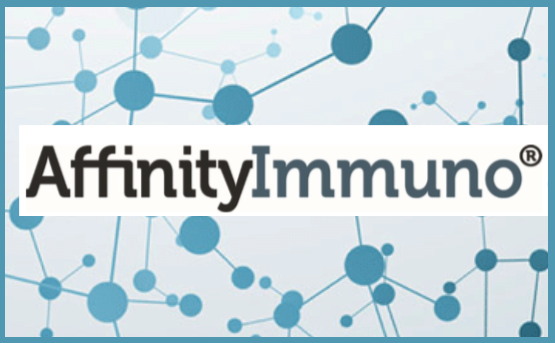Charlottetown-based life sciences company AffinityImmuno has met with good results in preclinical trials for an antiviral compound that shows promise against COVID-19, with infected mice seeing as much as an 81 percent reduction in the amount of virus in their lungs within four days.
The animal trials began in 2021 under a partnership with the Robarts Research Institute at Western University in Ontario and are the first step to AffinityImmuno eventually commercializing the molecule for use in humans, possibly under a partnership with an incumbent pharmaceuticals company.
AffinityImmuno itself was originally founded in 2014 by husband-and-wife team Jonathon and Amir Zuccolo, who hold immunology and biochemistry PhDs, respectively, as a research and development service company for drugmakers.
“We have some images of lung sections from these mice and there’s really a profound reduction in the formation of viral-infected tissue,” said Jonathon Zuccolo in an interview. “In the infected mice you see these big regions where there’s lots of virus, and when they receive treatment, you still see virus in the lungs, but it’s very, very limited by comparison.”
Jonathon and Amir found the antiviral compound, AI-001, after a friend approached them to help with her daughter’s science fair project. The Zuccolos developed an assay to identify substances with antiviral properties, which they later turned on their own library of plant-derived chemical compounds, happening upon a promising candidate.
“Our plan is to explore whether we can actually formulate this as a natural health product,” said Jonathon. “That’s kind of our short term goal, just to get this product to market quicker.
“And the second phase would be to actually team of with medicinal chemists to modify this drug, change it and see if we can make it more potent. It’s already pretty potent, but because it’s a naturally occurring compound, the idea is that there’s probably room for improvement in the (molecular) structure itself.”
That more potent form, he explained, would represent novel intellectual property that would make a partnership with a major pharmaceuticals company more likely — in fact the Zuccolos are specifically searching for potential collaborators.
They also believe AI-001 will be effective against avian influenza. The disease cannot yet be transmitted between humans, but organizations like the United States Centres for Disease Control and Prevention and the Bulletin of Atomic Scientists have publicly worried it could one day give rise to a pandemic. So the researchers from the Robarts Institute will soon run another round of pre-clinical trials on the Zuccolos' antiviral, this time testing it against avian flu.
So far, AffinityImmuno has four full-time employees and has secured funding to hire a post-doctoral student from Western to help with the company’s work on AI-001. Other than a smattering of federal and provincial government funding, the Zuccolos' antiviral work has so far been self-bootstrapped.










